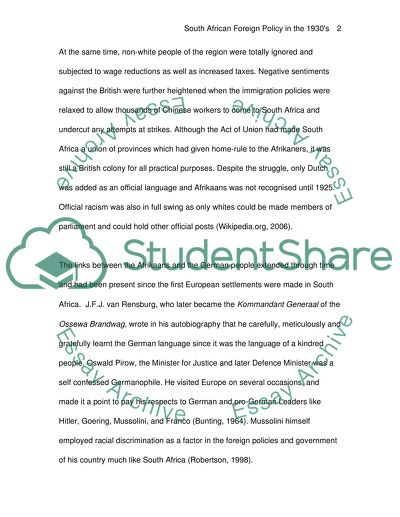Cite this document
(“South African Foreign Policy in the 1930's Essay”, n.d.)
South African Foreign Policy in the 1930's Essay. Retrieved from https://studentshare.org/history/1536017-south-african-foreign-policy-in-the-1930s
South African Foreign Policy in the 1930's Essay. Retrieved from https://studentshare.org/history/1536017-south-african-foreign-policy-in-the-1930s
(South African Foreign Policy in the 1930'S Essay)
South African Foreign Policy in the 1930'S Essay. https://studentshare.org/history/1536017-south-african-foreign-policy-in-the-1930s.
South African Foreign Policy in the 1930'S Essay. https://studentshare.org/history/1536017-south-african-foreign-policy-in-the-1930s.
“South African Foreign Policy in the 1930'S Essay”, n.d. https://studentshare.org/history/1536017-south-african-foreign-policy-in-the-1930s.


